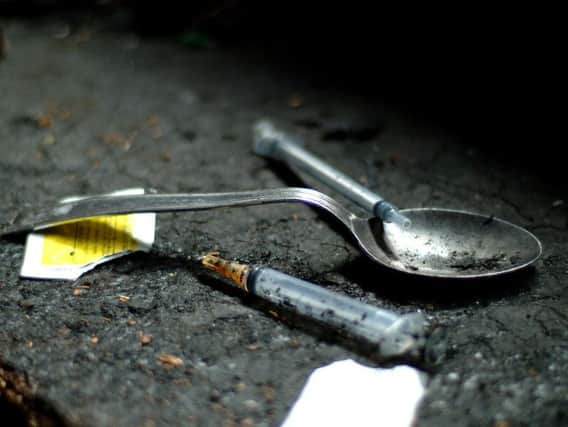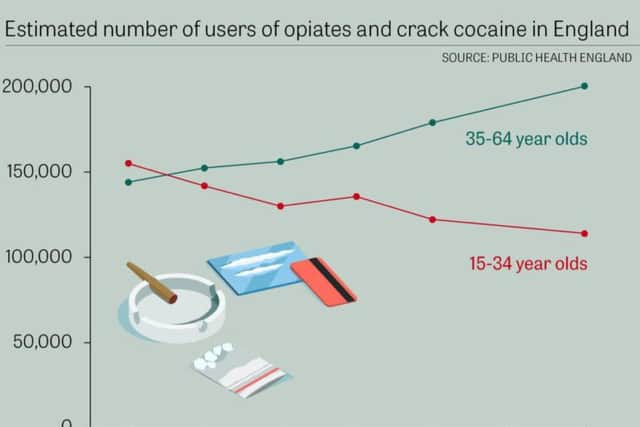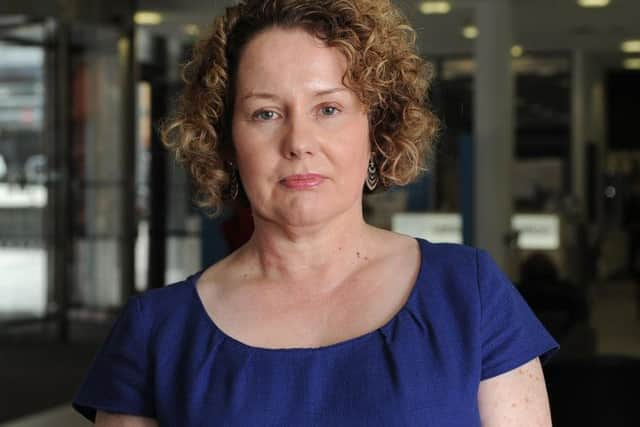Wigan's 'trainspotting' generation: Shock figures reveal number of older people hooked on opiates and cocaine


There has been a 44 per cent increase in just six years in the amount of people aged 35 to 64 using the drugs, according to Public Health England estimates.
The figures show there were 1,325 Wiganers in that age group who were opiate and crack cocaine users in 2016-17, compared to 921 users in 2010-11.
Advertisement
Hide AdAdvertisement
Hide AdThe rise was higher than the 39 per cent increase seen across England among people of the same age. Experts believe the hike in the number of middle-aged drug users is a legacy of Britain’s heroin and crack epidemic of the 1980s and 1990s.


Previously, heroin had been mainly used by a small number of affluent people in London, but a new supply of cheap heroin opened up between Asian and UK, leading to the number of young users - dubbed the Trainspotting generation - soaring to the hundreds of thousands.
This coincided with the development of crack cocaine, a particularly addictive form of the drug which can be smoked.
Those who became addicted at the time are now ageing and there are concerns they now face a higher risk of overdose or major health problems.
Advertisement
Hide AdAdvertisement
Hide AdSteve Moffatt, public policy manager at alcohol, drugs and mental health charity Addaction, said: “These statistics reflect a group of people who started using heroin or crack cocaine in the 1980s and 1990s.


Les Chandler, 62, has a history of heroin and crack cocaine use.
“I’ve got a lot of consequences from my using. I’ve got a pacemaker and I’ve got deep vein thrombosis in my legs from [using] needles,” he said.
“I’m quite lucky to still be around.”
Mr Chandler started taking drugs when he was just 13 but has now been sober for more than five years.
Advertisement
Hide AdAdvertisement
Hide Ad“Once I came off this time, my thinking got clearer and I looked at what I had done to myself. I thought, I’m lucky to still be alive. It all sort of hit home.
“I sort of realised I was getting old as well. It crept up on me. When you’re using opiates you’re living in sort of a deluded world and you don’t take anything on. It was a bit of a shock and I think that was the turning point.
“If I had carried on much longer I would have died. And my thinking when I was still using was, I’m going to die anyway, why stop now? That was how my thinking was before I went into detox.
“When I came out I asked myself, ‘Do I really want to die?’ Luckily there was an answer inside that said no. That little flame has grown over the past five years as I’ve nurtured it. There’s more to Les Chandler than drugs and dying.”
Advertisement
Hide AdAdvertisement
Hide AdMr Chandler now volunteers for the charity Addaction as a peer mentor.
He is about to finish a degree in counselling and plans to continue his education by doing a masters degree in trauma.
He said it was “never too late” for older people to stop taking drugs.
He said: “There’s still life in you, you can still turn it around with the right support and make something of the rest of your life.
Advertisement
Hide AdAdvertisement
Hide Ad“Around that age, you can think, well that’s it now, what’s the point in trying to change? You get resigned to that way of thinking and it’s all about how you think about yourself and getting a bit of motivation to change.
“Support is the most important thing for anyone. I’ve tried so many times to stop and stay stopped but the only reason it’s worked this time looking back is the support I’ve got around me.”
Charity is providing ‘life-changing’ support for addicts
The Wigan branch of a “life-changing” charity which provides recovery services for drug and alcohol addicts has been praised by health and social care watchdogs.
Addaction Wigan and Leigh has recently been rated “good” by Care Quality Commission inspectors.
Advertisement
Hide AdAdvertisement
Hide AdStaff at the centres have been commended for providing “safe” care to hundreds of people across the borough, whilst still seeing patients promptly.
In a report published this week, inspectors wrote: “The premises where clients were seen were safe and clean.
“The service did not have waiting lists and clients who required urgent support were given priority and seen promptly. Staff assessed and managed risk well and followed good practice with respect to safeguarding.”
Addaction Wigan and Leigh which operates from Coops Business Centre and Kennedy House, was assessed for its compliance with both the Mental Capacity Act and the Mental Health Act.
Advertisement
Hide AdAdvertisement
Hide AdThe new service, which is an amalgamation of three previous services, provides community based substance misuse services including substitute prescribing for adults as well as a young person’s service for those aged 10 to 18.
Engagement with the young person’s service is sometimes extended to the age of 25 when appropriate.
Of the key five areas entitled “safe, caring, effective, responsive and well-led”, the service received a rating of “good” across them all.
The inspectors spoke with clients, managers and staff members and reviewed treatment and prescription records in order to make its conclusions.
Advertisement
Hide AdAdvertisement
Hide AdThe CQC auditors wrote: “Clients we spoke with said that staff treated them with kindness and respect.
“They stated that staff understood their needs and always had time for them. They felt inspired, supported and motivated to recover and had progressed through their treatment.
“Clients described the service as life-changing.
“Staff respected clients’ privacy and dignity, and supported their individual needs. They involved patients and those close to them in decisions about their care and treatment.”